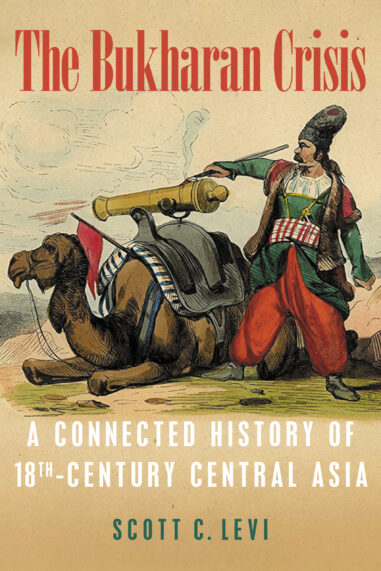

Paperback $32.00
Request Exam or Desk Copy. Request Review Copy
The Bukharan Crisis
A Connected History of 18th Century Central Asia
A masterful . . . synthesis of how oasis Central Asia from the sixteenth to the nineteenth century fits within world history. . . . The Bukharan Crisis succeeds admirably in its aim to relate Central Asia to major trends in world history. It is an ideal introduction both to world history for Central Asianists and to Central Asia for world historians. The critique of the Silk Road concept will be of particular use to students.

